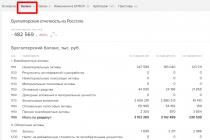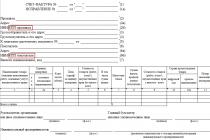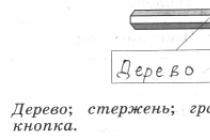If for any reason a taxpayer has overpaid taxes, penalties, and fines to the budget, then he has the right to timely offset (refund) of these amounts (clause 5, clause 1, article 21 of the Tax Code of the Russian Federation), and the tax authority is obliged to such a return (clause 7, clause 1, article 32 of the Tax Code of the Russian Federation).
We are talking about tax overcharged by the tax authority.
78th or 79th? Feel the difference
The rules that the budget “should” are established by Art. Art. 78 and 79 of the Tax Code of the Russian Federation. The first is devoted to amounts that were overpaid, the second to those that were excessively collected. How are these amounts different?
Excessive tax payment, as a rule, occurs when a taxpayer, calculating the amount of tax payable to the budget independently, that is, without the participation of the tax authority, for any reason, including due to ignorance of the tax law or an honest mistake, makes an error in the calculations (Definition of the Constitutional Court RF dated June 21, 2001 N 173-O).
The transfer of funds by the taxpayer to pay tax takes on the character collection in the case when the payment of amounts additionally accrued by decision of the tax authority is made. Here, issuing a demand to pay tax is a compulsory measure and the transfer of funds in pursuance of a decision of the tax authority cannot be considered as the voluntary fulfillment by the taxpayer of obligations to pay taxes and fees (Resolution of the Presidium of the Supreme Arbitration Court of the Russian Federation dated March 29, 2005 N 13592/04).
So, if the taxpayer independently (without the participation of the tax authority) transferred the excess amount to the budget, then the refund (offset) is carried out on the basis of Art. 78 of the Tax Code of the Russian Federation, if funds were transferred in pursuance of a decision of the tax authority - on the basis of Art. 79. The reasons for the occurrence of such situations are very different: they filed an updated declaration for past tax periods, indicating a lower amount to be paid than in the initial declaration; a technical error was made (the amount in the payment order was incorrectly indicated when transferring tax to the budget); changes have been made to tax legislation that come into force retroactively; The tax regime has changed.
Why is it so important to determine which article to apply if a certain amount is included in the budget? The fact is that the return procedure set out in these articles differs. Thus, the amount of excessively collected tax is subject to return to the taxpayer with interest accrued on it (clause 5 of Article 79), while the amount of overpaid tax is subject to offset or refund without accrual of interest, except for cases of accrual of interest for each day of violation of the return period (clause clauses 2 and 10 of Art. 78).
Often in practice, tax authorities do not transfer the interest provided for in Art. 79 of the Tax Code of the Russian Federation, due to the fact that, in their opinion, the organization voluntarily transferred mandatory payments in accordance with the requirements of the inspection, and therefore the amounts paid are not excessively collected and interest is not charged on them. This is exactly the argument the tax authorities made in the case considered by the FAS Moscow Region in Resolution No. KA-A40/15919-10 dated December 20, 2010. However, the judges rejected it, since the expulsion is a coercive measure, which is in accordance with the law and established judicial practice.
In the case considered by the Presidium of the Supreme Arbitration Court (Resolution No. 14230/06 dated May 22, 2007), the taxpayer independently paid the penalty based on the requirement issued by the inspection. Subsequently, this requirement was declared illegal, since the period for the forced collection of penalties had expired. The judges concluded that the amount paid by the organization was overcharged and should be returned to the taxpayer with interest.
The following question is not regulated by tax legislation and therefore gives rise to disputes in practice: how to qualify the payment of tax (as voluntary or forced) if the taxpayer has transferred tax, fines and penalties based on the results of a tax audit based on a decision of the tax authority, but before issuing a demand for payment? There are no clarifications from regulatory authorities on this matter, and there is no consensus in arbitration practice. For example, the Federal Antimonopoly Service of the North-West Zone in Resolution No. A05-992/2008 dated 09.09.2008 indicated: the fact that the taxpayer transferred the amounts of taxes and penalties to the relevant budgets before sending him a request for payment of illegally accrued tax payments does not affect the compulsory nature of the payment. But the FAS ZSO takes the opposite point of view. Refund of interest is part of the procedure for returning over-collected tax. Accordingly, for the return of interest, it is necessary that the disputed amount can be qualified as overcharged, and not overpaid. The collection procedure begins from the moment a tax payment request is sent to the taxpayer. In this case, the demand was not sent to the company, and the collection procedure did not begin. Taking into account these circumstances, the court came to the conclusion that the taxpayer paid the tax voluntarily, and not as a collection. Therefore, the provisions on the return of interest are not applicable to him (Resolution dated June 23, 2011 N A46-11313/2010).
Another controversial issue related to the choice between Art. Art. 78 and 79 of the Tax Code of the Russian Federation: is the amount of tax (fee, penalty, fine) collected excessively if it was unlawfully credited by the inspectorate against the taxpayer's overpayment? There are no official answers. As for arbitration practice, the overwhelming majority of arbitrators believe that offset is a form of forced collection, which means that in case of unlawful offset, interest should be accrued in accordance with clause 5 of Art. 79 Tax Code of the Russian Federation. For example, the FAS Moscow Region, in Resolution No. KA-A40/455-09 dated February 19, 2009, considered the following situation. According to the Federal Tax Service, the taxpayer unreasonably demands compensation for interest for late return of excessively collected tax amounts by offsetting the existing overpayment. Carrying out an offset does not relate to the procedure for forced collection of tax; therefore, the amount of tax is not excessively collected, but excessively paid. However, the court, recognizing the arguments of the Federal Tax Service as illegitimate, indicated: exhibited in accordance with Art. 69 of the Tax Code of the Russian Federation, the requirement to pay tax is a compulsory measure and its execution cannot be considered as voluntary fulfillment by the company of the obligation to pay tax. In this case, the Federal Tax Service Inspectorate violated the established deadlines for the return of tax amounts excessively collected from the taxpayer, therefore, the Federal Tax Service Inspectorate is obliged to pay the taxpayer the appropriate interest (A similar approach can be seen in Resolutions of the Federal Antimonopoly Service of the North Caucasus Region dated 07/08/2011 N A32-18543/2010, FAS Moscow Region dated 07/06/2011 N KA-A40/6359-11, FAS UO dated June 23, 2011 N F09-3143/11-S2).
Procedure for the return of overcharged amounts
Amount of overcharged tax shall be refunded to the taxpayer in the manner prescribed by Art. 79 Tax Code of the Russian Federation.
A taxpayer, if there is a “surplus” for one tax, may have arrears for other taxes of the corresponding type (debt for the corresponding penalties, fines). In this case, the refund is made only after the amount of excessively collected tax is offset against the specified arrears (debt).
FYI. In accordance with paragraph 1 of Art. 12 of the Tax Code of the Russian Federation in the Russian Federation establishes the following types of taxes and fees:
- federal (Article 13 of the Tax Code of the Russian Federation) - VAT, excise taxes, personal income tax, corporate income tax, mineral extraction tax, water tax, fees for the use of wildlife and aquatic biological resources, state duty;
- regional (Article 14 of the Tax Code of the Russian Federation) - taxes on the property of organizations, on the gambling business, transport tax;
- local (Article 15 of the Tax Code of the Russian Federation) - property tax for individuals and land tax.
Example 1. By the decision of the tax authority on an on-site tax audit, Northern Lights LLC was held accountable for committing a tax offense. In accordance with the decision, the inspectorate issued a demand for payment of VAT. The taxpayer fulfilled the specified requirement of the tax authority on time.
Subsequently, by judicial acts of the arbitration court, which entered into legal force, these requirements of the inspection were declared invalid.
The taxpayer applied to the tax office with an application for the return of the amount of excessively collected tax, which, together with the interest accrued on it, amounted to 500,000 rubles.
On the day the tax authority made the decision, this taxpayer had an income tax arrears in the amount of 200,000 rubles, including 20,000 rubles. to the federal budget, 180,000 rubles. - to the regional one.
VAT and income tax are federal taxes, so any excess VAT collected can be offset against income tax arrears.
The Federal Tax Service Inspectorate decided to offset the amounts of excessively collected VAT and interest accrued on this amount in the amount of 200,000 rubles. to pay off the arrears of income tax, including to the federal budget - 20,000 rubles, to the regional budget - 180,000 rubles.
The remaining amount is RUB 300,000. (500,000 - 200,000) was returned to the taxpayer's bank account.
An excessively collected amount of tax can be detected both by the organization itself and by the tax inspectorate. If the tax inspectorate independently discovers excessively collected amounts, it is obliged to inform the taxpayer about this within 10 days from the date of establishing this fact (clause 4 of article 79 of the Tax Code of the Russian Federation).
An application for the return of an overcharged amount can be submitted to the tax office within one month:
- from the day when the organization learned about the excessive collection;
- from the date of entry into force of the court decision.
If this deadline is missed, the overpayment can only be recovered in court by filing a claim in court within three years from the day the person learned or should have learned about the fact of excessive tax collection (clause 3 of Article 79 of the Tax Code of the Russian Federation).
As noted in the Resolution of the Presidium of the Supreme Arbitration Court of the Russian Federation dated April 20, 2010 N 17413/09, this rule provides for the taxpayer the opportunity to choose a method of protecting his violated right in the event that the inspection has excessively collected taxes (fees, penalties, fines). At the same time, the Tax Code of the Russian Federation does not indicate that the taxpayer has the right to file a claim in court, subject to pre-trial appeal to the tax authority regarding the return of collected amounts.
FAS MO indicated on the same occasion: in order to return the overpaid amount of tax in accordance with clause 6 of Art. 78 of the Tax Code of the Russian Federation, the organization must submit a corresponding application to the inspectorate. Unlike Art. 78, in Art. 79 of the Tax Code of the Russian Federation establishes that the taxpayer has the right to resolve the issue of returning an excessively collected amount in court without contacting the tax authority (Resolution dated November 24, 2009 N KA-A40/11229-09).
Within one month from the date of receipt of the application from the organization, the tax office must return the excessively collected amount with interest accrued on it.
Arr. Attention! Interest on the amount of excessively collected tax is accrued from the day following the day of collection until the day of the actual refund.
As follows from paragraph 23 of the Resolution of the Plenum of the Supreme Arbitration Court of the Russian Federation dated February 28, 2001 N 5, when deciding the moment of fulfillment of the obligation to return the relevant amounts to the taxpayer by transferring them by bank transfer to the account specified by the recipient, the courts must be guided by the general rules, according to which the payer is recognized as having fulfilled its obligation from the moment the corresponding amount is received by the bank indicated by the recipient of the funds.
From this statement we can conclude that the tax authority’s obligation to return the overcharged tax to the taxpayer is considered fulfilled from the moment the funds are actually transferred to the taxpayer’s current account (and not from the moment the tax authority makes a decision on the refund).
The interest rate is assumed to be equal to the refinancing rate of the Central Bank of the Russian Federation in force on those days. If the refinancing rate changes in certain periods of time, interest is calculated separately for each period of validity of the corresponding refinancing rate (clause 3.2.7 of Order of the Federal Tax Service of Russia N MM-3-1/683@). We present the calculation of the amount of interest as a formula:
S% = Sreturn x D x SR / 365,
where S% is interest on the amount of overcharged tax;
S refund - the amount of overcharged tax subject to refund;
D - the number of days for which interest is calculated (from the day following
after the day of collection, to the day of actual return);
SR - refinancing rate.
Example 2.
In accordance with the decision of the Federal Tax Service, based on the results of a tax audit, Strekoza LLC was issued a demand dated 02.02.2011 N 119 for the payment of income tax (plus penalties and fines) in the amount of 2,190,000 rubles.
On 02/07/2011, the taxpayer fulfilled this requirement of the tax authority by transferring the entire amount to the budget - 2,190,000 rubles. However, having disagreed with the decision of the Federal Tax Service, he appealed to the arbitration court, which declared the specified requirement of the inspection illegal. The judicial act came into force on August 18, 2011. In this regard, on August 22, 2011, the taxpayer submitted an application to the Federal Tax Service for the return from the budget of the excessively collected amount of income tax and interest accrued on this amount.
The overcharged amount was returned on September 09, 2011 to the bank account of Strekoza LLC along with interest.
The taxpayer must pay interest in the following amount:
|
Validity period |
Quantity |
Bid |
Quantity |
Sum |
|
In total, the amount of overcharged tax in the amount of RUB 2,190,000 was credited to the taxpayer’s bank account. and interest accrued on this amount in the amount of RUB 104,370.
In example 2, the amount of excessively collected income tax was transferred to the taxpayer’s bank account. Now let's assume that he has arrears on another federal tax and the tax authority made a credit to pay off this arrears. The question arises: will the taxpayer receive interest?
In practice, tax inspectors often believe that, in accordance with Art. 79 of the Tax Code of the Russian Federation, interest is accrued only in the event of a refund of excessively collected tax. In the event that a credit, rather than a refund, is made, the taxpayer is not entitled to interest. However, arbitrators, as a rule, do not agree with such a statement - see, for example, Resolution of the FAS Moscow Region dated December 8, 2010 N KA-A40/14927-10.
According to the opinion of the Federal Antimonopoly Service of the North-West Zone, set out in the Resolution of October 16, 2008 N A52-345/2008, from the analysis of Art. Art. 78, 79 of the Tax Code of the Russian Federation it follows that in terms of their economic content there are no significant differences between the offset and refund of tax payments and, in fact, the offset of tax amounts is a type (form) of the return of these amounts in order to restore the property status of the taxpayer. The accrual of interest on the amount of excessively collected tax is compensation for the economic losses of the taxpayer in connection with the unlawful seizure of a sum of money, that is, the restoration of his violated right. Based on this, the taxpayer’s right to pay interest accrued on the amount of overcharged tax cannot be made dependent on the form of tax refund (refund or credit).
So, interest on the amount of excessively collected tax, provided for in Art. 79 of the Tax Code of the Russian Federation are subject to accrual not only when they are returned to the taxpayer, but also when offset at the request of the taxpayer against the payments indicated by him.
An overpayment of taxes, even a very small one, is like the proverb: “It’s a small misfortune, but it doesn’t let you sleep.” Full immersion in the topic will make it easy to restore the balance in tax payments before the statute of limitations makes it excruciatingly painful.
In general, the action plan is simple: discovered ⇒ chose: refund or offset ⇒ submitted an application to the tax office ⇒ received a refund or offset of the overpayment.
BLANKS AND FORMS on the topic
So, overpayment of tax: how to return? – read below in full detail and with illustrations. (the article mainly talks about overpayment of “tax”, but everything stated is also true for fines and penalties for taxes – approx. editorial staff)
Contents of the article
|
What to do if there is an overpayment of taxes?
Overpayment of tax can occur in two cases:
- you are mistaken - this is unnecessary paid tax;
- the tax authority made a mistake - this is unnecessary exacted tax.
In the second case - the amount of excess tax collected is refundable with interest(from the day following the collection to the day of return or offset at the Bank of Russia refinancing rate in effect during this period).
The distinctive criterion is the basis for the transfer to the budget.
Overpaid tax is formed if you paid an amount more than required by law. The reasons may be different, for example:
- the entrepreneur himself (without the “help” of tax authorities) incorrectly calculated the amount of tax;
- error in the payment (incorrect amount, incorrect details, repeated payment, etc.);
- change in the tax regime (for example, in the middle of the year the right to use the simplified tax system was lost, and advance payments had already been made), changes in legislation;
- At the end of the year, the final tax amount is less than the advance payments made.
The common basis for these reasons is that the overpayment was made by the entrepreneur without the participation of the tax authority. If the tax authorities made a decision, made a demand, and you paid it, even voluntarily, this is already an excessively collected tax.
Overcharged tax– more was transferred to the budget than required by law, and this was caused by the actions of the tax authority. For example:
- the inspectorate assessed additional taxes, and the entrepreneur challenged them in court, but at the time of the court’s decision the money had already been transferred to the budget;
- the tax authority assessed tax, fines, penalties, reflected this in the decision based on the results of the tax audit and (or) in the request, the amounts were transferred to the budget, after which errors were identified. It does not matter whether the entrepreneur voluntarily paid the excess amounts or they were collected forcibly, it is important that the basis was “calculations” of the Federal Tax Service;
- The tax authorities identified an overpayment of taxes and independently carried out an offset against the arrears; later it turned out that there was an overpayment, but the debts in the repayment of which the overpayment was offset were accrued erroneously (an unlawful offset from the date of its implementation can be considered an excessively collected amount).
The resulting overpayment can be:
- offset against existing tax debts (fines, penalties);
- offset against future payments;
- return to the bank account.
The procedure for “offsetting” an overpayment is simpler than a refund; as a rule, the tax authorities are more willing to offset it. But offsets are only possible between taxes of the same level (see the next topic).
If there are tax debts (penalties, fines) that can be offset, first an offset will be made to pay them off; the remaining amount can be disposed of at your own discretion.
If there are debts that can be offset, tax authorities can independently direct the resulting overpayment to pay off the debt, without your application, notifying you “after the fact.” But they do not always show such independence. Therefore, you don’t have to wait for the Federal Tax Service and take the initiative: the test will be completed faster - less penalties.
If the overpayment is unnecessary recovered amount, there are no tax debts, and you want offset amounts against future payments– a question may arise, since the Tax Code does not directly indicate the possibility of such an offset (it only stipulates the return of such amounts). The approved application forms for this “option” require minor adjustments. However, the tax authorities may agree to this (internal regulations allow them such an offset). But it’s better to consult with the inspectorate first.
To return or offset tax overpayments, you must send an application to the Federal Tax Service. Application forms are approved by Order No. ММВ-7-8/09 (see below).
Which taxes can be offset?
All taxes are divided into groups (types): federal, regional and local. This distribution is established by the Tax Code (Articles 12 – 15).
Federal taxes and fees:
- taxes under special tax regimes (STS, UTII, Unified Agricultural Tax, Patent)
- value added tax;
- excise taxes;
- personal income tax;
- corporate income tax;
- mineral extraction tax;
- water tax;
- fees for the use of objects of the animal world and for the use of objects of aquatic biological resources;
- state duty.
Regional taxes:
- corporate property tax;
- gambling tax;
- transport tax.
Local taxes and fees:
- land tax;
- property tax for individuals;
- trade fee.
Overpayment can be offset only between taxes of the same group (type), regardless of which budget the revenues go to and which BCC (budget classification code).
In addition, an entrepreneur can act as a tax agent: for example, transfer personal income tax to the budget from the salaries of his employees. It is also impossible to offset between taxes for which the individual entrepreneur acts as a tax agent and taxes for which the individual entrepreneur is the taxpayer.
Application for offset of overpaid or collected tax (form/blank, sample)
![]() Adj. No. 9 to Order of the Federal Tax Service of Russia dated March 3, 2015 No. MMV-7-8/90@: open for viewing or filling out (doc, 32KB).
Adj. No. 9 to Order of the Federal Tax Service of Russia dated March 3, 2015 No. MMV-7-8/90@: open for viewing or filling out (doc, 32KB).
Application for refund of overpaid or collected tax (form/blank, sample)
![]() Adj. No. 8 to the Order of the Federal Tax Service of Russia dated March 3, 2015 No. ММВ-7-8/90@: open for viewing or filling out (doc, 34KB).
Adj. No. 8 to the Order of the Federal Tax Service of Russia dated March 3, 2015 No. ММВ-7-8/90@: open for viewing or filling out (doc, 34KB).
Sample form with comments.
Where should I go to offset or refund taxes, penalties, and fines?
As a general rule, it is necessary to contact the tax authority at the place of registration (i.e., place of registration).
If an entrepreneur is registered with several tax inspectorates (at the place of business, at the location of the real estate), it is better to send the application to the tax authority where the overpayment was identified - this is the opinion of the Ministry of Finance. Although the Federal Tax Service in a number of cases believes that the taxpayer has the right to independently choose which tax office it is more convenient for him to contact.
If an error is discovered after a change in tax office, all applications are submitted at the place of current tax accounting.
Some confusion may arise if there was a tax change during the period when the issue of credit/refund was “in process.” For example, an entrepreneur filed an application and changed the Federal Tax Service before the tax authorities made a decision. In such a situation, the tax authority at the old place of registration must complete the issue - this is not spelled out in the Tax Code of the Russian Federation, but follows from judicial practice.
If the tax authority made a decision on the “old” registration, and the entrepreneur challenged it in court, the court may oblige the tax inspectorate to fulfill the obligation to return/offset, both at the old and new place of registration (from the point of view of the court, the tax authorities are centralized system).
You can also return/set off the overpayment in court.
At the same time, for overpaid amounts, it is necessary to first contact the tax authority; if a refusal is received or a decision is not received at all, it is necessary to file a complaint with a higher authority and only after that - to the court.
Regarding excessively collected taxes, you can go directly to the court, but you can also first send an application to the Federal Tax Service.
What is the deadline to submit an application for a credit or refund of overpaid taxes?
Overpaid tax
The period for filing a claim with the tax authority is 3 years. In general, the period begins to count from the moment of payment.
Peculiarities:
- If the overpayment occurred when transferring advance payments (that is, at the end of the year the tax amounts turned out to be less than the advance payments already transferred), then the three-year period begins from the date of filing the annual declaration. Or from the statutory date for filing the return if the return is filed late.
- If the tax was paid in parts (several payments) and there was an overpayment, the period is calculated for each payment separately.
Rules for calculating the period:
- the term expires on the corresponding date and month of the last year of the term (i.e. the same date of the same month three years later);
- If the expiration date falls on a weekend or holiday, the expiration date is postponed to the next working day.
For example: an erroneous payment was made on October 28, 2014, since October 28, 2017 is a Saturday, then you must apply for a refund (offset) of the overpayment until October 30, 2017 inclusive.
The deadline for going to court when challenging a decision of the tax authorities is 3 months from the day the tax authority refused the offset (refund) or did not make a decision on the offset (refund) within the period established by the Tax Code (this is 10 working days).
You can also go to court with material requirement on offset or refund of overpaid taxes, i.e. file an application with the court not to appeal the decision of the tax authority, but to return (offset) the overpaid amount of tax. In this case, the general limitation period is 3 years. There is a fine line here, a legal one: if this is your case, contact a lawyer.
Overcharged tax
The deadline for contacting the tax authority is 1 month from the day you learned about the collection, or when the judicial act on the unlawful collection of taxes came into force.
The period for going to court is 3 years from the day you learned or should have known about the collection of excess payments.
P.S. Have you done everything and are waiting for a refund or credit? Be patient...

When will the inspectorate return (offset) the overpayment of taxes?
The tax office must make a decision on offset or refund of amounts within 10 working days after receiving your application. Tax authorities must notify of their decision within 5 working days after its adoption.
If the decision is positive, the following is carried out:
- credit – within 10 working days;
- return – within one month.
The period is generally counted from the date the Federal Tax Service receives the taxpayer’s application.
But. If an overpayment is detected by an entrepreneur, the tax authority has the right to not immediately believe it and initiate additional procedures:
- reconcile tax payments - no more than 15 working days (if there are no discrepancies - 10 working days);
- conduct a desk audit (if the presence of an overpayment follows from a declaration, for example, an annual or clarifying one) - no more than 3 months.
And after these procedures are completed, the countdown begins for the Federal Tax Service to make a decision and offset and return the overpayment, i.e. plus 10 business days for credit or plus a month for refund.
- Article 78 of the Tax Code of the Russian Federation (Part 1) “Credit or refund of amounts of overpaid taxes, fees, penalties, fines”
- Article 79 of the Tax Code of the Russian Federation (Part 1) “Refund of amounts of excessively collected taxes, fees, penalties and fines”
- Order of the Federal Tax Service of Russia dated 03.03.2015 N ММВ-7-8/90@ "On approval of document forms used by tax authorities when carrying out offset and refund of amounts of overpaid (collected) taxes, fees, penalties, fines"
- Letter of the Ministry of Finance of Russia dated July 12, 2010 N 03-02-07/1-315 (the offset and return of excess payments to the budget is carried out by the inspection at the place of your registration that identified the overpayment)
- Resolution of the Plenum of the Supreme Arbitration Court of the Russian Federation dated July 30, 2013 N 57, paragraph 33 (for overpaid payments, an appeal to the court is possible only after the inspection has refused to satisfy the claim or left it unanswered)
- Part 4 Art. 198 of the Arbitration Procedure Code of the Russian Federation (the period for going to court when challenging a decision or action (inaction) of the tax authorities is three months)
What norm of the Tax Code allows offsetting and between which BCCs is it possible in 2019?
The rules for offsetting overpaid taxes are described in Art. 78 Tax Code of the Russian Federation.
Find out where the overpayment comes from and how it is detected.
According to the law, it is allowed to offset taxes of one type (in this case, the BCC and the type of budget - the recipient of tax payments do not play a role):
- overpayment of federal tax (profit, VAT, etc.) - towards payment of any federal tax;
- overpayment of regional tax (property, transport, etc.) - towards the payment of any regional tax;
- overpayment of local tax (for example, land tax) - towards the payment of this tax.
It is also possible to use the offset procedure in relation to overpaid insurance premiums. Since 2017, it is allowed to carry out offsets only within insurance premiums of the same type (for example, overpayments on contributions to the Pension Fund of the Russian Federation are allowed to be offset only against upcoming payments for the same).
To carry out the offset, you need to take care of sending the controllers an application for offset of the amount of overpaid tax. We'll tell you how to do this in the next section.
Application for credit: form and sample
The amount overpaid to the budget can be found by the taxpayer himself or the supervisory authority. If the controllers were the first to find it, they are obliged to inform you about it in writing within 10 days from the date the fact of overpayment was established (clause 5 of Article 78 of the Tax Code of the Russian Federation).
If you found the overpaid amount yourself, you need to send an application to the tax authorities to carry out the offset. As of January 09, 2019, the application form has changed. Now you need to use the form as amended by the Federal Tax Service order No. ММВ-7-8/670@ dated November 30, 2018.
 Download the form
Download the form
Read about the rules for filing an application for a refund of tax overpayment.
Below is a sample application form.
 Download sample
Download sample
The application is reviewed by controllers, and the result is reported to the taxpayer:
- within 10 days from the day they received it;
- from the date of signing the tax reconciliation report (if the reconciliation was initiated by you).
Please read the regulated tax response form as amended as of 01/09/2019.
 Download form
Download form
The offset is carried out by employees of the Federal Tax Service where you are registered.
Results
To offset overpaid tax amounts, fill out an application. After the inspectors consider the application for offset of the amount of overpaid tax, they will make an appropriate decision and inform you about it. The forms of documents involved in the document flow of the offset procedure are approved by the regulations of the tax department. As of 01/09/2019, their forms have been updated.
The Tax Code provides for procedures within the framework of which payers of certain fees can return amounts of such fees that were overpaid to the budget or excessively collected by the state. The implementation of this right must be carried out in accordance with the provisions of individual articles of the Tax Code of the Russian Federation, primarily 78 and 79. The first regulates the procedure for returning to the taxpayer and crediting overpaid fees to current payments. The structure of this article assumes a fairly detailed regulation of the relevant activities of the Federal Tax Service. The second article specifies the algorithm for refunding taxes that were excessively collected. What are the specifics of the noted procedures? How can a taxpayer exercise his right to a refund of fees or a credit for them?
Purpose of Article 78
Art. 78 of the Tax Code of the Russian Federation is a source that regulates the procedure for offset or legal return of taxes and other payments to the budget that were overpaid by one or another entity - a citizen or organization. Similar scenarios can arise if the taxpayer has calculated more tax than was necessary, or has actually transferred to the budget an amount exceeding what was necessary to contribute. It will be useful to study the structure of Art. 78 of the Tax Code of the Russian Federation separately, point by point.
Point 1
This element of the article under consideration of the Tax Code of the Russian Federation includes provisions establishing that amounts of excess taxes must be offset against the current obligations of a citizen or organization for a current budget obligation, repayment of arrears on other taxes, as well as debts on penalties and fines, or returned in the manner that is regulated by the relevant article of the Tax Code of the Russian Federation. In present in Art. 78 clause 1 of the Tax Code of the Russian Federation also states that the offset of excess federal, regional and municipal taxes, as well as penalties on them, is carried out in correlation with similar types of budget obligations.
Point 2
The second paragraph of the article under consideration of the Tax Code of the Russian Federation includes provisions according to which the offset or refund of excess taxes must be carried out by the territorial division of the Federal Tax Service at the place of registration of the payer, unless other rules are included in the Tax Code of the Russian Federation. The paragraph in question is Art. 78 also includes a provision under which refunds are generally made without accruing any interest.
Point 3
The next paragraph of the article under consideration includes provisions according to which the Federal Tax Service must inform the payer about identified facts of overpayment of certain taxes, as well as about the amounts thereof no later than 10 days after the discovery of excessive transfers. If the tax authorities are not sure that the overpayment has actually been made, but assume that it may be, then they can offer the taxpayer to carry out a joint reconciliation of the calculated indicators for the relevant payments.

Point 4
The paragraph in question is Art. 78 establishes that in order to exercise the legal right to offset overpayments against current liabilities, the taxpayer must send a written application to the tax office. This document can also be submitted electronically, provided that it can be signed with an enhanced qualified digital signature, or through the taxpayer’s online account. The decision to offset the amount of excess taxes is made by the Federal Tax Service no later than after the expiration of a period of 10 days after the department receives a corresponding application from a citizen or organization, or from the date of signing by the Federal Tax Service and the payer of an act confirming the implementation of a joint reconciliation of payment of fees, if any was carried out.
Point 5
Paragraph 5 of the article in question states that the offset of overpayments to pay off tax arrears should be carried out by the Federal Tax Service independently. Thus, in the general case, the subject of payment of fees does not need to send an additional application to the tax office. The Federal Tax Service is obliged to comply with the requirements of the considered paragraph of Article 78 within a period of 10 days after the fact of an overpayment is discovered, or from the date the Federal Tax Service and the taxpayer sign an act confirming the joint reconciliation of payments. In a number of cases, the deadline for complying with the relevant order is counted from the moment the court decision is made, if one was made in view of the holding of hearings on tax disputes.
The paragraph in question is Art. 78 of the Tax Code of the Russian Federation includes provisions that establish that the taxpayer, despite the fact that this action is not mandatory by law, still has the right to send the application discussed above to the Federal Tax Service. This can be done, for example, to speed up the process of crediting overpayments to future payments. In this case, tax authorities must offset the corresponding amounts within a period not exceeding 10 days after receiving the document from the taxpayer, or from the day on which the act of joint reconciliation of payments was signed, provided that such a reconciliation is carried out.
Point 6
Let us now consider how overpayments are returned to the budget. This procedure is regulated by clause 6 of Art. 78 Tax Code of the Russian Federation. The amount of overpaid tax must also be returned by the Federal Tax Service to the payer upon a written application, which can be generated in electronic form, provided that it is signed using a qualified digital signature.

The Federal Tax Service is obliged to refund the tax no later than 1 month upon receipt of the relevant application. In the provisions of paragraph 6 of Art. 78 of the Tax Code of the Russian Federation also states that if a taxpayer submitting a request for a refund of overpayments to the Federal Tax Service has arrears, such arrears are covered first. If a certain amount remains after settlement of debts, a refund is possible.
Point 7
According to the norms of paragraph 7 of Art. 78 of the Tax Code of the Russian Federation, an application to the Federal Tax Service sent by a taxpayer who intends to offset or legally return an overpayment of taxes can be drawn up and submitted to the department within 3 years from the moment the excess amount is contributed to the budget, unless otherwise provided by regulations acts related to the field of taxes and fees.
Clause 8
In accordance with the paragraph under consideration, the Federal Tax Service must make a decision on compensation to the citizen or organization of overpaid fees within a period that does not exceed 10 days after receiving the application from the Federal Tax Service, or from the date the reconciliation act is signed by the department and the subject of tax payment - if one has been carried out. In paragraph 8 of Art. 78 of the Tax Code of the Russian Federation also states that an order for the return of the corresponding overpayment, issued on the basis of a decision taken by the Federal Tax Service to compensate the corresponding amount, is sent by the Federal Tax Service to the Federal Treasury - an agency which, in turn, carries out settlements with the applicant in accordance with the budget laws of the Russian Federation .
Clause 9
According to the norms of paragraph 9 of Article 78 of the Tax Code of the Russian Federation, tax authorities are obliged to inform payers about the decision made on the offset or return of overpayments, which may consist of approving the implementation of this procedure or refusing to carry it out. The first or second activity must be carried out within a period not exceeding 5 days after consideration of the issue. The notification from the Federal Tax Service is transmitted to the head of the company, individual, their representatives against receipt or in another accessible way that can confirm the fact of receipt of this information.
If we are talking about the interaction of the Federal Tax Service and a consolidated group of taxpayers, then the amount of tax overpayments must be offset or returned in favor of the responsible participant of the relevant association. If the agreement on its formation has terminated, then a refund or offset of fees is carried out at the request of the responsible entity. This operation is not carried out if the responsible participant included in the consolidated group has arrears, fines and other penalties to the budget.
Clause 10
In accordance with the norms of clause 10 of Article 78 of the Tax Code of the Russian Federation, the amount to be returned or offset increases in correlation with the refinancing rate of the Central Bank, if settlements for it between the Federal Tax Service and the taxpayer are not carried out within the period specified in clause 6 of the article in question of the Tax Code of the Russian Federation .
Clause 11
According to the norms of paragraph 11 of Article 78 of the Tax Code of the Russian Federation, the territorial structure of the Federal Treasury, which carries out the refund of tax overpayments, must notify the Federal Tax Service about when the due amount was actually transferred to the taxpayer and in what volume.

Clause 12
If the interest, which supplements the overpaid fee in accordance with the provisions of clause 10 of the article in question of the Tax Code of the Russian Federation, is not transferred to the applicant in full, then the Federal Tax Service makes a decision on compensation for the remaining ones, which are calculated based on the date of actual crediting of the corresponding amounts to the taxpayer. The Federal Tax Service must carry out this activity no later than 3 days from the date of receipt from the Federal Treasury of information on the date of return of funds, as well as on the amount thereof. The Federal Tax Service, in turn, must send the necessary information to the Federal Treasury.
Points 13 and 14
In accordance with paragraph 13 of the article under consideration of the Tax Code of the Russian Federation, offset or compensation of overpayments of taxes must be carried out in Russian rubles. Paragraph 14 prescribes the application of the rules set forth in Article 78 of the Tax Code of the Russian Federation not only to taxes, but also to other obligations: penalties, fines, and various fees. The corresponding rules set out in Article 78 should also apply, based on the norms of clause 14, to the subjects of payment of fees to the budget and responsible participants of consolidated groups of payers. The considered paragraph of Article 78 also establishes that the tax Russian Federation must apply the appropriate rules also in the process of offset or refund of overpayments for VAT, which is subject to reimbursement in the manner prescribed by law.
Clause 15
Clause 15 of Art. 78 of the Tax Code of the Russian Federation fixes the rule according to which the fact of indicating a subject as the owner of assets in a special declaration, which is presented in accordance with the Federal Law “On Voluntary Declaration”, as well as the transfer of such property to the actual owner cannot be the basis for recognizing certain payments to the budget unnecessary.
As follows from the norms contained in Article 78 of the Tax Code, the tax paid into the treasury is recognized as excessively collected due to additional assessment upon the fact of a tax audit or its voluntary payment by the taxpayer. Another scenario for the occurrence of corresponding overpayments is a change in the tax base due to a court decision or an order from a higher structure of the Federal Tax Service.
Is it possible to refund tax under Article 78 to non-residents of the Russian Federation?
Many payers are concerned about the question: can non-residents of the Russian Federation return taxes overpaid to the budget? These are considered foreigners and Russian citizens who live in the Russian Federation for less than half of 365 days. As evidenced by expert materials about Art. 78 of the Tax Code of the Russian Federation with comments, this procedure is possible. Let's consider its nuances.
The main feature of the taxation of non-residents of the Russian Federation is that they pay personal income tax in the amount of 30%, while in the general case the tax is calculated at a rate of 13% of income. The need to return the corresponding fee in the manner prescribed by the provisions of Art. 78, may arise due to incorrect determination and erroneous calculation of personal income tax at a rate of 30% instead of 13%. In general, the algorithm according to which overpayments are returned to the budget in this case is the same as in the case of other grounds for applying this procedure. That is, the payer must provide the Federal Tax Service, as prescribed in paragraph 6 of Art. 78 of the Tax Code of the Russian Federation, application, then wait for the tax authorities to make a decision. It will be useful to consider how it should be compiled.

How to submit an application for tax compensation?
The application form for a legal refund of overpayments from the state budget is generally unified. In the upper right part of this document you must indicate to whom it is being sent. In general, this is the head of the territorial Federal Tax Service Inspectorate for the municipality in which the taxpayer operates. So we write: “To the head of the Federal Tax Service for such and such a city or region.” Below you need to record from whom the application is being sent. We write “From this.” The next point is to indicate the applicant’s passport data (series of the document, its number, date of issue, as well as the authority in which the document was issued). The tax refund application form must also contain the taxpayer’s registration address - we record it in the line below. Next, write “Application” in the middle of the page. Below we justify our appeal to the Federal Tax Service with a phrase like “In accordance with the norms of clause 6 of Art. 78 of the Tax Code of the Russian Federation, in connection with overpayment of tax, I ask you to transfer the amount due for refund to such and such a personal account.”
Next, we record the details of the corresponding bank account. These most often are: full name of the recipient, INN, bank name, BIC, correspondent Below we put the date of preparation of the document, signature and its transcript. What might an application for a refund of overpaid tax look like? An example of this source might look like this:

Differences in the corresponding statement may be due primarily to the type of tax, fee, fine or other type of payment to the budget. Thus, a refund of personal income tax or, for example, as we noted above, VAT can be carried out.
Articles 78 and 79 of the Tax Code of the Russian Federation: how are they related to each other?
It may be noted that the Tax Code has an article very similar to Art. 78 - 79. The Tax Code of the Russian Federation regulates the procedure for the return of amounts for taxes and other obligations that were excessively collected. Let's study its most notable points.
So, in paragraph 1 of Art. 79 states that the return of excess payments to the budget should be carried out only if the corresponding amount has previously been correctly offset in favor of paying off possible arrears. If it turns out that there are none, then only in this case the Federal Tax Service will have to carry out the procedures provided for in Article 79 of the Tax Code of the Russian Federation. In accordance with the rules contained in paragraph 2 of Art. 79 of the Tax Code of the Russian Federation, the decision of the Federal Tax Service on the return of excess taxes to the payer must be made within a period that does not exceed 10 days after the department receives the application. Its form will be generally similar to that used in the case of the exercise of the right to offset payments excessively transferred to the state.
The Federal Tax Service, in the course of the payment refund procedure, as in the scenario when overpaid tax is credited in accordance with Article 78, interacts with the Federal Treasury. Thus, tax officials must send instructions to this department to return the corresponding amounts, which are formed on the basis of decisions of the Federal Tax Service. Taxpayers can submit an application for a refund of excess fees to the Federal Tax Service within 1 month from the moment they become aware of the existence of overpayments to the budget.

In some cases, the right to the implementation of appropriate compensation to the subjects of payment of fees must be proven in court. A statement of claim, the subject of which is confirmation of the legal grounds for a tax refund, can be drawn up within a period of 3 years from the moment the taxpayer discovers the fact of excessive collection.
The Federal Tax Service must independently notify the fact that there is an excessively collected tax in the budget, as follows from the norms of clause 4 of Art. 79 of the Tax Code of the Russian Federation, the subject of fulfilling obligations to the budget within a period that does not exceed 10 days after the relevant fact is established.
The amount of tax collected into the budget in excess of the required amount must be returned to the applicant, based on the norms of paragraph 4 of Art. 79 of the Tax Code of the Russian Federation, no later than 1 month from the date of sending the application to the Federal Tax Service in the prescribed form. Also, in some cases, interest is charged on top of it in correlation with the Central Bank refinancing rate.
If the subject of interaction with the Federal Tax Service is a consolidated group of enterprises, then the tax is returned to the accounts of the responsible participant of this association.
The territorial structure of the Federal Treasury must notify the Federal Tax Service of settlements with the taxpayer, as is the case with the procedure for offsetting excess taxes under Article 78 of the Tax Code of the Russian Federation.
Today we have to find out what an application for a refund of overpaid tax amounts is. What should every conscientious taxpayer know about this document (and the process of writing it)? What features of the procedure are recommended to pay attention to? The answers to all these questions will be given below. Figuring out how to return excess tax is not very difficult.
Grounds
So, the first step is to understand when a citizen or organization can contact the tax service with an application in the established form. Not every person has such an opportunity.
So, an application for a refund of overpaid tax can be submitted if:
- the citizen initially transferred more funds to the tax authorities than required;
- exceeded the amount of tax due;
- an updated declaration has been submitted;
- upon VAT refund.
In practice, the first scenario is most common. Regardless of the reason, you will have to act in a specific way. What are we talking about?
Application procedure
What is the procedure for refunding overpaid tax? This procedure, as already mentioned, is not the most difficult. It does not require serious paperwork from the applicant.
To get back money paid in excess of the amount actually needed, you need:
- Prepare all documents necessary for the case. A list of them will be offered below.
- Write a statement in the prescribed form for a refund.
- Submit a request to the tax service at your place of residence/registration. Attach the prepared package of papers to it.
- Wait for a response from the tax authorities. If the answer is positive, you can expect the required money to be transferred to the account of the citizen/organization.
No more manipulations are required. In fact, everything is much simpler than it seems.

About deadlines
Now a little about when exactly a person can contact the tax office with a corresponding request. Are there any restrictions on this?
Yes. The fact is that a citizen has the right to a refund of the amount of overpaid tax (Article 78 of the Tax Code, paragraph 7) within three years from the moment the surplus was formed. For a longer period of time, money will not be returned under any circumstances.
How long does it take to bring an idea to life? How long will it take for the tax authorities to consider the application?
Currently, the deadline for refunding overpaid taxes is 30 days. Throughout the month from the date of submitting a request of the established form, the tax service will consider it. But exactly when the money will be transferred to the taxpayer’s account, the mentioned service reports.
Tax actions
What should the tax authorities do when receiving an application for a refund of money paid for taxes? It's very simple. It is enough to review the submitted application and respond to it within a certain time from the date of receipt. The response must indicate the date when the money will be transferred to the applicant’s account.

If we describe the actions of the tax authorities more precisely, we get the following situation:
- Only 10 days are allotted for a direct decision on a refund for overpaid tax. The tax service must carefully study all the papers and prepare a response to accept or reject the application.
- By the end of the allotted month, submit the order to the territorial treasury body. This operation is necessary if the decision is positive.
- The tax authorities must notify the taxpayer of their response within 5 days from the date of its adoption.
It follows that it is recommended to wait for notifications from tax authorities a maximum of 15 days from the day on which an application for a refund of the overpaid amount of tax was submitted.
Documents
What documents may be useful to bring your idea to life? There are, as already noted, not very many of them.
The citizen will have to prepare the following package of papers:
- ID card;
- statement;
- documents indicating payment of tax in certain amounts;
- (if available);
- details of the account to which the money should be transferred if the decision is positive.
This concludes the list of everything you need. What else should every taxpayer know?

Debt and return
For example, about the fact that the citizen is not always refunded the entire amount paid in excess of the required tax. There are exceptions.
Which ones exactly? If an application for a refund of overpaid tax was submitted by a person with debts on any other taxes and fines, it will not be possible to return all the money. The tax authorities will transfer to the citizen’s account only the amount taken into account after deducting the debt.
In other cases, the money is transferred in full. The exception is cases of delay of due payments by tax authorities. The fact is that if the deadlines for transferring funds under an application for a refund of excess tax are violated, a penalty is due for each day of delay. Accordingly, the longer the tax authorities delay payments, the more money they will have to pay.
Sample
What does an application for a refund of overpaid tax look like? We can only say with certainty that this document is submitted only in written form. Either handwritten or typed on a PC.
But the exact text has no indication. The application is completed according to the general rules for writing business papers. The body text can be written in free form, but it must contain all the information about the requirement.
So the statement might look something like this:
“I, (data about the citizen), ask you to return to me the taxes paid in excess (name of payment and amount of overpayment) and transfer them to the account (details). Evidence of the overpayment is attached to this application."

That's it. After filing such a paper, the case for the return of the amount of overpaid tax collected will be considered. All that remains is to wait. If there are no debts to the state, the citizen will receive the money back in approximately a month from the date of application.














